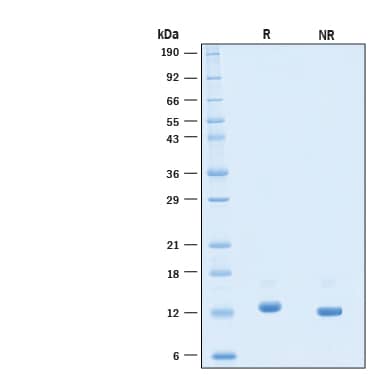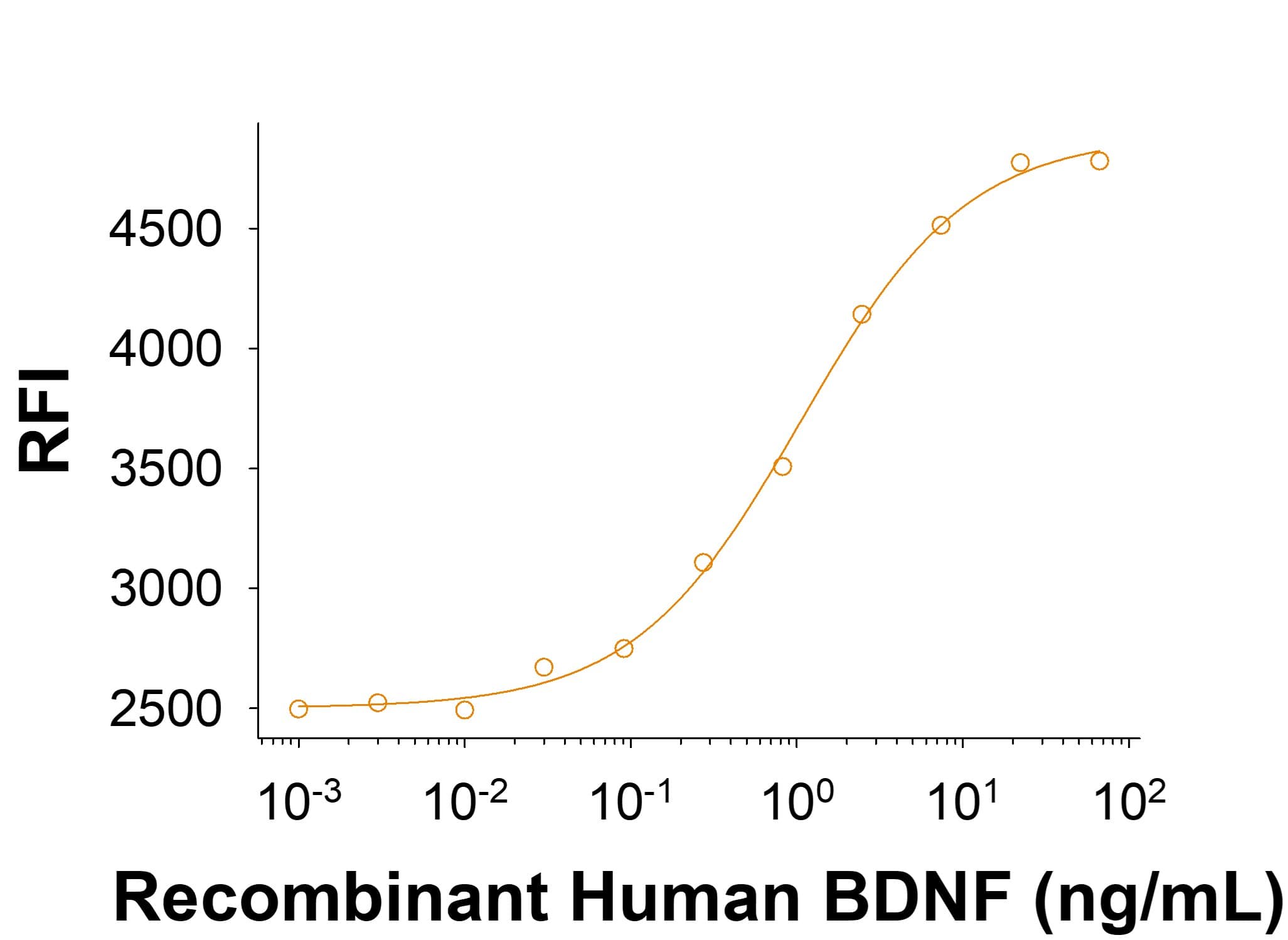Recombinant Human BDNF Protein, CF Best Seller
R&D Systems, part of Bio-Techne | Catalog # 11166-BD

Key Product Details
Product Specifications
Source
Chinese Hamster Ovary cell line, CHO-derived human BDNF protein
His129-Arg247
His129-Arg247
Purity
>95%, by SDS-PAGE visualized with Silver Staining and quantitative densitometry by Coomassie® Blue Staining.
Endotoxin Level
<0.10 EU per 1 μg of the protein by the LAL method.
N-terminal Sequence Analysis
His129
Predicted Molecular Mass
13.5 kDa
SDS-PAGE
11-15 kDa, under reducing conditions.
Activity
Measured in a cell proliferation assay using BaF mouse pro-B cells transfected with TrkB. The ED50 for this effect is 0.200-2.00 ng/mL.
Scientific Data Images for Recombinant Human BDNF Protein, CF
Recombinant Human BDNF Protein Bioactivity.
Measured in a cell proliferation assay using BaF mouse pro-B cells transfected with TrkB. The ED50 for this effect is 0.200-2.00 ng/mL.Recombinant Human BDNF Protein SDS-PAGE.
2 μg/lane of Recombinant Human BDNF Protein (Catalog # 11166-BD) was resolved with SDS-PAGE under reducing (R) and non-reducing (NR) conditions and visualized by Coomassie® Blue staining, showing bands at 11-15 kDa.Formulation, Preparation and Storage
11166-BD
| Formulation | Lyophilized from a 0.2 μm filtered solution in PBS with Trehalose. |
| Reconstitution | Reconstitute at 100-500 μg/mL in PBS. |
| Shipping | The product is shipped at ambient temperature. Upon receipt, store it immediately at the temperature recommended below. |
| Stability & Storage | Use a manual defrost freezer and avoid repeated freeze-thaw cycles.
|
Background: BDNF
References
- Numakawa, T. et al. (2010) Histol. Histopathol. 25:237.
- Egan, M.F. et al. (2003) Cell 112:257.
- Pruunsild, P. et al. (2007) Genomics 90:397.
- Bathina, S. and Das, U.N. (2015) AMS 11:1164.
- Binder, D.K. and Scharfman, H.E.(2004) Growth Factors 22:123.
- Cattaneo, A. et al. (2016) Transl. Psychiatry 6:e958.
- Andero, R. et al. (2011) Am J. Psychiatry 168:163.
Long Name
Brain-derived Neurotrophic Factor
Alternate Names
Abrineurin, ANON2, BULN2, Neurotrophin
Gene Symbol
BDNF
UniProt
Additional BDNF Products
Product Documents for Recombinant Human BDNF Protein, CF
Product Specific Notices for Recombinant Human BDNF Protein, CF
For research use only
